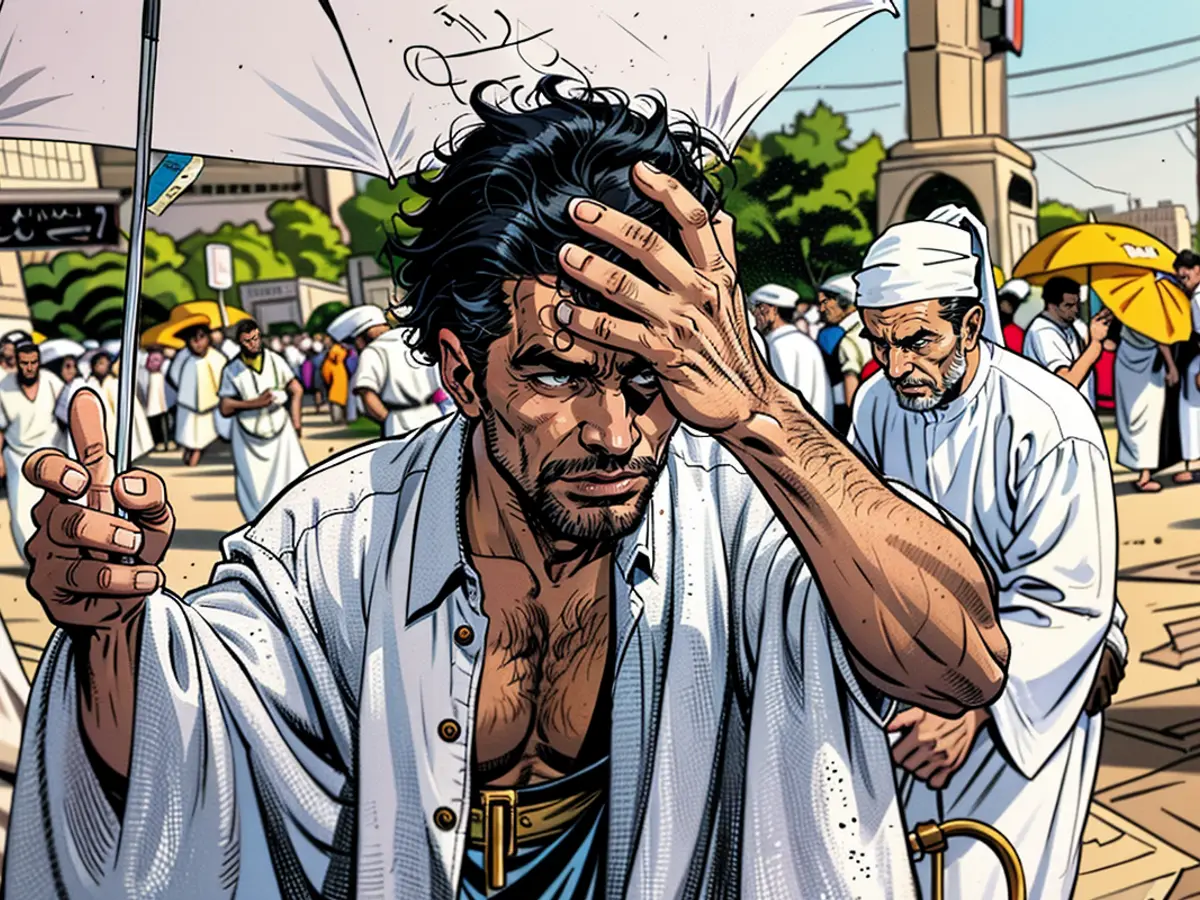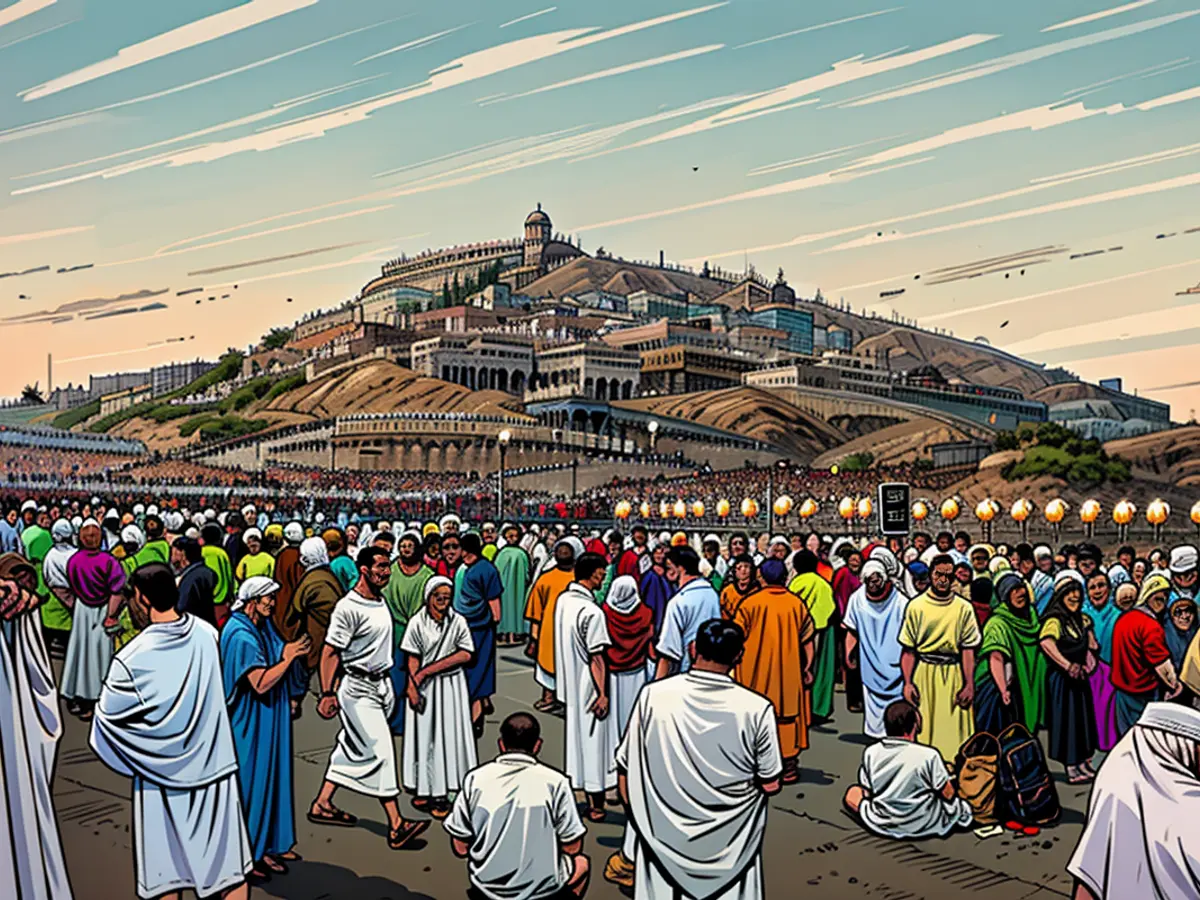Six pilgrims perish due to heatstroke during Hajj in Mecca, with temperatures reaching an expected 118 degrees Fahrenheit.
Six deceased individuals, all Jordanian nationals, were confirmed by the Jordanian foreign ministry on Saturday. They're currently collaborating with Saudi authorities in Jeddah concerning burial arrangements and potential transfer of the bodies back to Jordan.
Reports of their demise emerged as faithful assembled at Mount Arafat on Saturday, marking the main Hajj event. The niece of one of the departed shared with CNN Arabic that her aunt perished on Mount Arafat and was interred in Saudi Arabia.
Over 1.8 million individuals are participating in this year's Hajj, as indicated by the Saudi General Authority for Statistics.
Hailed as one of the significant religious gatherings globally and Saudi Arabia's largest annual event, the Hajj happens two months and 10 days following the conclusion of Ramadan, during the Islamic month of Dhul-Hijjah. Since the Islamic calendar is lunar and shorter than the Gregorian calendar, the Hajj's Gregorian schedule shifts slightly each year.
This year, Saudi Arabia is predicted to experience intense heat during the five-day Hajj, with temperatures soaring up to 48°C (118°F) in Mecca.
Hajj officials are encouraging pilgrims to carry umbrellas and keep themselves well-hydrated given the extreme conditions, as per the Ministry of Health's spokesman Muhammad Al-Abdulaali, based on the state news agency SPA.
In addition to over 1,600 personnel with specialized heatstroke medical units and 30 rapid response teams, the Saudi army has also mobilized an additional 5,000 health and first aid volunteers to attend to the pilgrims.
Jordan expressed that more than 4,000 pilgrims were part of their official delegation this year. However, the foreign ministry clarified that the six deceased were not affiliated with the “official delegation,” since they didn't have valid Hajj licenses to complete the pilgrimage.
Hajj is one of the five essentials of Islam.Every able-bodied, financially capable Muslim is required, at least once in their lifetime, to embark on a journey to the holy city of Mecca. The pilgrimage involves numerous intricate rituals, such as donning a distinctive garment symbolizing human equality and unity before God, a circular, counter-clockwise procession around the Kaaba, and the symbolic stoning of evil.
Completing the pilgrimage permits the addition of the terms al-Hajj or hajji (pilgrim) to a person's name.
Over the past decade, Saudi Arabia has committed billions of dollars to enhance transportation, technology, and accommodations for Hajj pilgrims, a key revenue source for the world's leading oil producer.

Read also:
Due to the intense heat in the Middle East during the Hajj, World Health Organization officials have urged countries to issue travel advisories to their citizens participating in the pilgrimage.
Despite the challenges faced during the Hajj, thousands of Muslims from around the world continue to make the journey to Mecca, underscoring its significance as a unifying force in the Middle East and the world.







